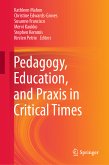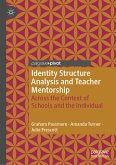"The notion of interculturality is used, and at times misused and abused, in education and research. In Dervin and Jacobsson's book, with much needed boldness, we are called upon and inspired to be more critical and reflexive with this polysemic notion. Many of us in education have been hoping to get their hands on this excellent book."
-Professor Emerita Marie-José Barbot, University of Lille, France
This book reviews and analyses the importance of interculturality in teacher education. Although some principles might be common across countries, there is no global agreement on the meanings of interculturality. Unlike most books on the topic, it is argued that educators should be critical of the notion and of the problematic influence it can have on students if used loosely. The authors provide an up-to-date review of the different meanings, concepts and methods used to define interculturality in teacher education. In doing so, they offer useful frameworks and strategies to address problems when teaching it. Including practical strategies as well as theoretical analysis, this book will be of use to teacher educators, student teachers and teachers to unthink and reformulate the way they engage with interculturality.
Fred Dervin is Professor of Multicultural Education at the University of Helsinki, Finland. He also holds distinguished professorships in Australia, Canada, China, Luxembourg, Malaysia and Sweden. Dervin specialises in intercultural education, the sociology of multiculturalism and academic mobility.
Andreas Jacobsson is Senior Lecturer in Intercultural Studies at Karlstad University, Sweden. His research is primarily focused on intercultural communication education, interculturality and early childhood education, intercultural film and media, intercultural epistemology and philosophy.
Dieser Download kann aus rechtlichen Gründen nur mit Rechnungsadresse in A, B, BG, CY, CZ, D, DK, EW, E, FIN, F, GR, HR, H, IRL, I, LT, L, LR, M, NL, PL, P, R, S, SLO, SK ausgeliefert werden.









